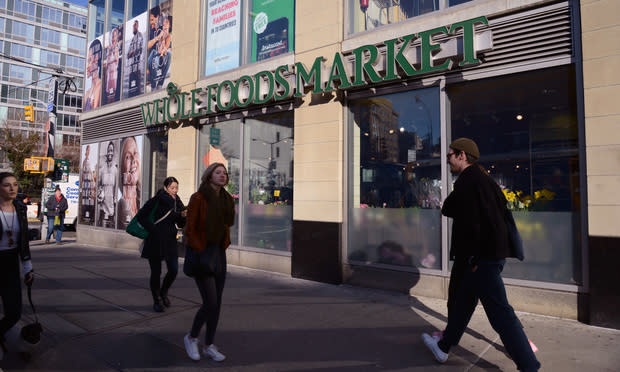Whole Foods Can't Erase NLRB Ruling Against Workplace Recording Policy
[caption id="attachment_15259" align="alignnone" width="620"]

Whole Foods. Credit: Rick Kopstein/ ALM [/caption] A federal labor panel has refused to overturn an Obama-era ruling that said the Whole Foods employee handbook unlawfully imposed broad workplace restrictions against recording conversations and taking photos. Whole Foods Market Group Inc., represented by the law firm Proskauer Rose, unsuccessfully challenged the board's 2015 order in the U.S. Court of Appeals for the Second Circuit. A federal appeals panel last year upheld the NLRB order against Whole Foods, saying that certain prohibitions on workplace recording without management approval could "chill" workers' labor rights. The three member board said in its order May 1 that the agency does not have power to "modify an order that has been enforced by a court of appeals." NLRB chairman John Ring and member William Emanuel recused without explanation in Monday's order. Their former law firms—Morgan, Lewis and Bockius and Littler Mendelson—have provided legal services to Amazon.com, the parent of Whole Foods. Ring's financial disclosure identified Amazon as one of his former clients. Lawyers for Whole Foods in January asked the board to reconsider the 2015 decision. They pointed to an Republican-led NLRB decision last year overturning a sweeping ruling that governed handbook policies. Proskauer Rose partner Kathleen McKenna, a lawyer for Whole Foods, did not immediately respond to request for comment Wednesday. Republican board members Emanuel, Marvin Kaplan and Philip Miscimarra in December voted to overturn the employee handbook standard the agency set in the 2004 case Lutheran Heritage Village-Livoni. That case set out a test for judging whether workplace handbook policies interfered with employees' labor rights. The Lutheran decision said a policy would violate the National Labor Relations Act, or NLRA, if workers "reasonably construed” the directives as limiting their right to engage in protected concerted activity, even if that is not the intent of the policy. The Republican board’s decision in December, in a case against The Boeing Company, specifically cited Miscimarra’s dissent in the Whole Foods recording policy dispute. The Trump board's new standard requires the agency to evaluate “the nature and extent of the potential impact on NLRA rights” and “legitimate justifications associated with the rule.” The board said its Boeing analysis would apply retroactively to all pending cases. Lawyers for Whole Foods argued the board does have the power to modify post-court enforced orders. The attorneys also said making changes to the employee rules would pose a "monumental administrative and operational challenge." Austin, Texas-based Whole Foods has 88,000 employers in 450 stores.
"Whole Foods has extremely strong arguments supporting the legitimate business purposes behind maintaining the rules at issue in this case," the Proskauer attorneys wrote in a recent brief. "Therefore, the company is extremely interested in maintaining these policies."
The NLRB general counsel's office, in its brief, cited "longstanding board precedent" in arguing the board did not have authority to "rescind or substantively amend" an order that had been enforced by a federal appeals court. The only pending matter, according to the NLRB general counsel, is "Whole Foods' compliance with the Second Circuit's order." Read more: Whole Foods' No-Recording Policy Violated Labor Law: US Appeals Court Inside a Morgan Lewis Partner's New Conflicts Disclosures for NLRB Post John Ring of Morgan Lewis, Trump NLRB Pick, Discloses $2.7M Partner Share Littler Mendelson's Emanuel, Trump Pick for NLRB, Discloses Compensation

